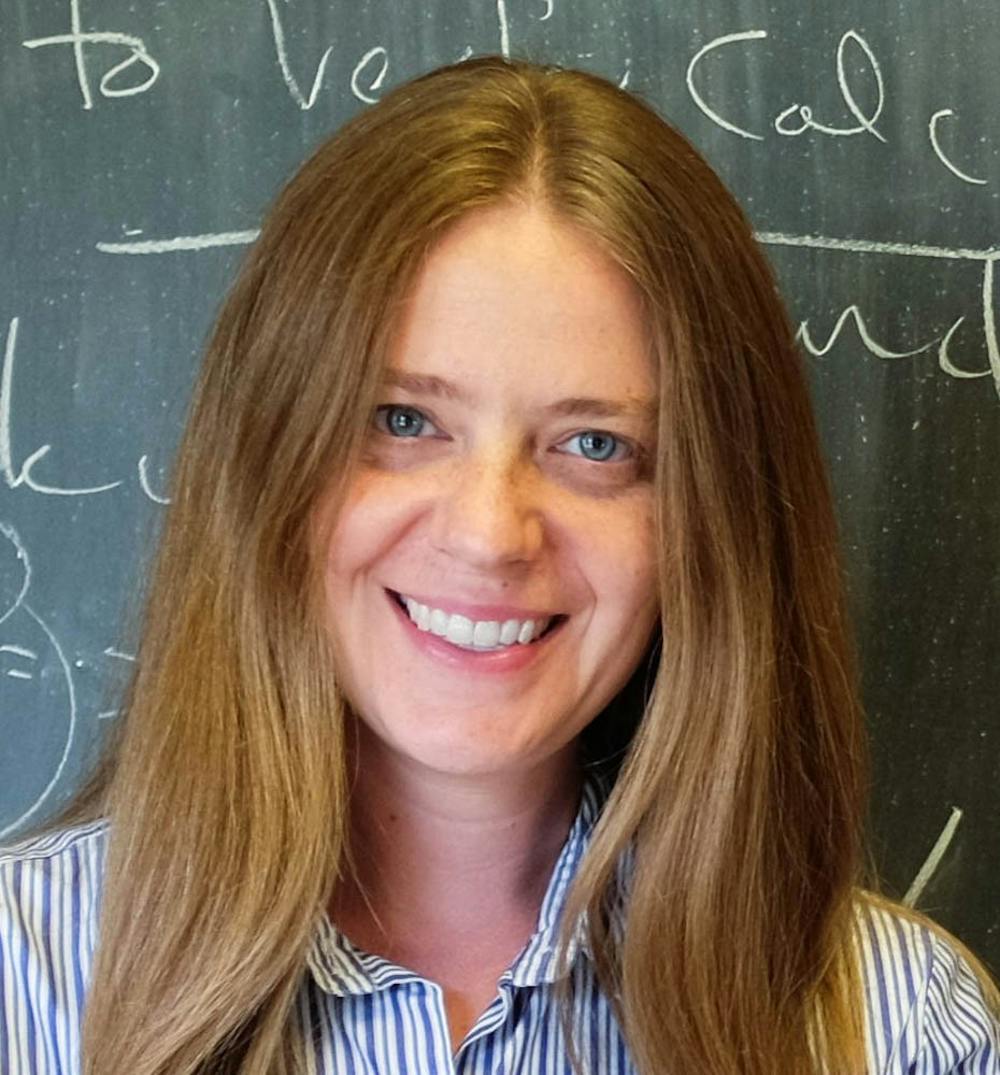Caroline Klivans, senior lecturer in applied mathematics and computer science, achieved every student’s dream and proved her former advisor wrong.
The Partitionability Conjecture was postulated by Richard Stanley, Klivans’ doctorate advisor at the Massachusetts Institute of Technology. Fewer than 50 years later, his advisee challenged the claim.
Alongside colleagues from the University of Texas at El Paso and the University of Kansas, Klivans released a paper disproving the 35 year-old Partitionability Conjecture earlier this year.
“(Stanley) is an outstanding mathematician who has made many conjectures that lead the field,” Klivans said. “He has many that are correct.”
The Partitionability Conjecture demonstrates the relationship between classes of spaces and how they interact at different levels, Klivans said. This conjecture shows the relationships as beautiful and organized, which is a compelling belief for those invested in the subfield of algebraic combinatorics.
“In some sense, we believed these were true because it gave order, it gave pattern, it gave structure to this area,” Klivans said.
Klivans undermined this structure with a team consisting of University of Texas at El Paso Professor Art Duval and University of Kansas Professor Jeremy Martin, working with the assistance of University of Kansas graduate student Bennet Goeckner.
Klivans, Duval and Martin have been partners in math for over nine years. After meeting at a conference in San Diego, the professors have created a tradition of weekly Skype calls. Their long-standing collaboration has produced a series of joint papers.
“We’ve had these weekly meetings for longer than one would expect,” Klivans said. “Even our colleagues have been surprised by our consistency.”
Through disproving the organized structure of the Partitionability Conjecture, Klivans and her team created all kinds of questions that lie at the intersection of various fields of mathematics and computer science.
“I am reminded of the end of Pride and Prejudice,” said Duval. “At the end, Mr. Bennett says something like, ‘Hey, which other daughters can I marry off now?’ With the Paritionability Conjecture, it was like, ‘Which other conjectures can we ruin?’”
Klivans and her colleagues are now tackling technicality questions that emerged from their recent disproof, Klivans and Duval both confirmed.
But individually, Klivans is moving on. She is writing a book on sandpile models set to come out at the end of the year. Titled “The Mathematics of Chip Firing,” Klivans’ newest project will explain how a system with local rules, such as physical sand falling onto a surface, leads to more widespread effects. Klivans is drawing on her intersectional interest within mathematics and computer science to produce what she calls a “resource cannon for the area of study.”
While she works on her research through Brown and the Institute for Computational and Experimental Research in Mathematics, Klivans’ acclaim as a lecturer caught the attention of the computer science department. She was recently promoted to senior lecturer, which provides a salary boost and public recognition of good work, said Tom Doeppner, vice chair of the computer science department.
"She has been doing an outstanding job as an instructor," said Doeppner. "She teaches two very popular classes: An applied math class in the fall, and a computer science class in the spring. Both courses are attracting huge numbers of student."
As for Klivans's relationship with Stanley, the two remain great friends. Klivans was even an organizer for Stanley's 70th birthday party, which was a conference to honor his groundbreaking work.





